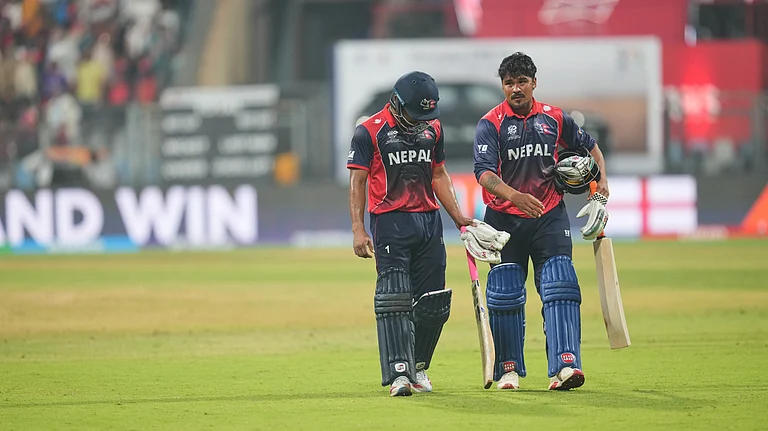By one of those quirks of irony with which life is replete, this book—looking backat one of the crucial landmarks in the apparently endless circle ofconflict-conciliation-conflict between India and Pakistan—reached me on the eve ofthe 'inconclusive, not failed' Agra summit. Indeed, it arrived on the day whennewspapers had splashed General Pervez Musharraf's interview 'rejecting'the Simla Agreement and the subsequent Lahore Declaration. After his arrival in Delhi,however, he denied having trashed Simla and Lahore and emphasised that he was onlyunderscoring the failure of these two accords to resolve the 'core' issue ofKashmir.
This surely revived Simla's resonance and enhanced the relevance of the theme ofthe book under review, Simla's 'wasted promise'. The book's ownpromise—that the two well-known co-authors from the two sides of the subcontinentaldivide, P.R. Chari and Pervaiz Iqbal Cheema, might have produced an agreed assessment ofthe Simla Agreement and its subsequent working or non-working—also excited me. Butthis turned out to be vain hope. The relatively slim volume is a compendium of twoseparate books that often give a contrary view of even established facts. It reminds mesomewhat of the 1961 report by the Indian and Chinese officials on the boundary question.
Of the two, Chari is relatively objective, for he does not fully adhere to the standardIndian position and is willing to look at the situation from more than one point of view.Cheema, for all the respect I have for his scholarship, disappoints by sticking firmly toPakistan's line. To say this is not to suggest that everything he says lacksvalidity. Much of what he says—especially his plea for a settlement of the Kashmirissue "within some framework", either Simla or the UN—is certainlypertinent.
Two examples of his excessive partisanship that detract from the undoubted value of hiscontribution may be cited. The first is the "nuclearisation of South Asia"because of India's first underground detonation in 1974. Understandably, Cheemaargues that this accelerated the already fast erosion of the Simla Agreement andevaporation of the 'Simla spirit'—a conclusion with which Chari agrees.Where Cheema is profoundly wrong is in claiming that Pakistan's'aspiration' to go nuclear was triggered only after India's 'allegedpne'. This indeed is the Pakistani refrain but it is contradicted conclusively byirrefutable evidence that Zulfikar Ali Bhutto launched the Pakistani nuclear programme atthat famous meeting of scientists under a marquee in Multan in January 1972.
What is more, Zulfi's memorable declaration (an adaptation really of Mao'searlier saying in the Chinese context)—"we will eat grass but make theBomb"—was made not in 1974, nor in 1971 but in January 1965. Why? Because LalBahadur Shastri had inaugurated India's plutonium separation plant, the importance ofwhich Bhutto understood better than other Pakistanis or, for that matter, Indianpoliticians.
Secondly, Cheema makes the absurd claim that the fighters Pakistan had to withdraw fromKargil in 1999 were only mujahideen while the world knows that they were soldiers ofPakistan's Northern Light Infantry. Bill Clinton has confirmed this—in relationto Nawaz Sharif's desperate dash to Washington on July 4, 1999—in a bbcprogramme devoted to the former US president.
All this is peripheral compared with the book's fundamental flaw: a curiousrefusal to mention the principal reason that made the Simla Agreement infructuous. It wasBhutto's failure to live up to his promise—admittedly verbal, not written, butsolemn nonetheless—gradually to convert the Line of Control in Jammu and Kashmir intoan international border. This was the essence of the Simla solution and"gradually" was the key word. At first he pleaded "domestic politicaldifficulties" but later bragged—among others, to the then Indian ambassador inIslamabad, Shankar Bajpai—that despite being the leader of the "defeatedcountry" he had outsmarted the proud and victorious Indira Gandhi. She has rightlybeen criticised for being too trustful of a man who was so slippery that compared with himan eel would have been a leech. Her advisors were victims of what can only be called the"Versailles syndrome"—the notion that one shouldn't be too harsh to avanquished foe. Chari at least notes the existence of the verbal understanding; Cheemaignores it completely.
For all that, the Simla Agreement of 1972 will continue to be of interest to seriousstudents of India-Pakistan relations. But Musharraf has delivered yet another blow to itsrelevance. For one of the three reasons no document could be signed at Agra was theGeneral's refusal to treat the proposed Agra Declaration as a continuation of theaccords at Simla and Lahore.


























